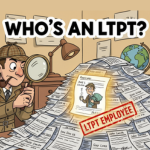Category: 401k Plans
Long-Term, Part-Time Employee Administration
January 15, 2026
Long-term, Part-time employees became eligible for the first time in 2024 for for-profit corporations and in 2025 for nonprofit corporations. 403(b) plan sponsors’ auditors will request backup for LTPT employee identification, eligibility, and their effective opportunity to defer during next year’s audits. This blog will explain the rules and the best practices for employers challenged … Continued
Do You Have an RFP Template for a 401(k) | 403(b) Plan Audit?
December 17, 2025
Do You Have a Template for a Request for Proposal (RFP) for a 401(k)/403(b) Plan? Almost every time I present an educational seminar, at least one attendee asks me if I have a template for a retirement plan audit RFP. After discussing the importance of selecting a quality plan auditor and providing a list of … Continued
January 1 Plan Mergers and the One-Day Audit Controversy
September 22, 2025
In Summary Final Form 5500 Filing, Asset Distribution, and Legal Title: A plan’s final Form 5500 filing obligation is triggered not by the effective date of termination, but by the complete distribution of all assets. In a merger, the final filing is determined by the date the legal title of the assets transfers to the … Continued
55 Things You Should Know About 401(k)/403(b)/457(b) Designated Roth Accounts
March 10, 2025
In Summary Designated Roth Accounts Contribution Rules: Participants in 401(k), 403(b), or 457(b) plans can make after-tax contributions to a designated Roth account. These contributions are combined with any pre-tax deferrals to count toward the annual limit ($23,500 in 2025). Unlike Roth IRAs, there are no income caps preventing high earners from contributing to their … Continued
Delaware’s Senator Roth and His Roth Account Legacy
February 18, 2025
In Summary Roth’s Vision: Senator Roth’s legacy continues through tax-free retirement innovation, as his creation of the Roth IRA in 1997 transformed retirement savings and inspired later Roth-style accounts like Roth 401(k), 403(b), and 457(b). Mandatory Roths Era: Rothification marks a shift toward mandatory after-tax contributions, beginning in 2026 when High Earners must make catch-up … Continued
The New Super Catch-up for 401(k) and 403(b) Plans
February 04, 2025
In Summary Introducing the Super Catch-Up: Effective January 1, 2025, plan sponsors can optionally allow participants aged 60 to 63 to contribute a “super catch-up,” which is 150% of the regular catch-up limit. For 2025, this allows an additional $11,250, bringing the total maximum deferral for this age group to $34,750. Correct Classification: A contribution … Continued
A Deficient Form 5500 Filing is Preferable to a Delinquent Filing
January 21, 2025
In Summary Deficient Filings vs. Delinquent Filings: During the AICPA conference, the DOL’s Marcus Aron clarified that the department strongly prefers a “deficient” filing (filed on time but incomplete, such as missing an audit) over a “delinquent” filing (not filed at all). A deficient filing can be amended later to include the audit report and … Continued
The Rules of Engagement for Correcting Inadvertent Benefit Overpayments, or Not!
November 12, 2024
In Summary New IRS Guidance for IBO Flexibility: IRS Notice 2024-77 provides flexibility for inadvertent benefit overpayments (IBOs) from retirement plans. It confirms that employers are permitted, but not required, to seek recoupment of funds paid to a participant by mistake. Choosing Not to Recoup Preserves Rollover Status: If a plan sponsor forgives the overpayment, the … Continued
IRS Announces Increases on Benefits and Contributions Dollar Limitations for 2025
November 06, 2024
The Internal Revenue Service has announced adjustments on the limitations affecting retirement plans. In particular, participants can now elect to defer up to $23,500 to 401(k), 403(b), and 457(b) Plans in 2025 compared to $23,000 in 2024. Below is a chart that outlines updated employee benefit plan limits: PLAN LIMITS RETIREMENT & SOCIAL SECURITY … Continued
The Trouble with True-ups: Make Sure You Budget for the Maximum Match
October 07, 2024
In Summary Understanding the True-Up: A true-up provision ensures employees receive the maximum potential employer match by looking at their total annual contributions against their total annual compensation. This contrasts with a per-paycheck match, which only looks at the contribution made from that specific paycheck. This feature is essential for employees who “front-load” their retirement … Continued









